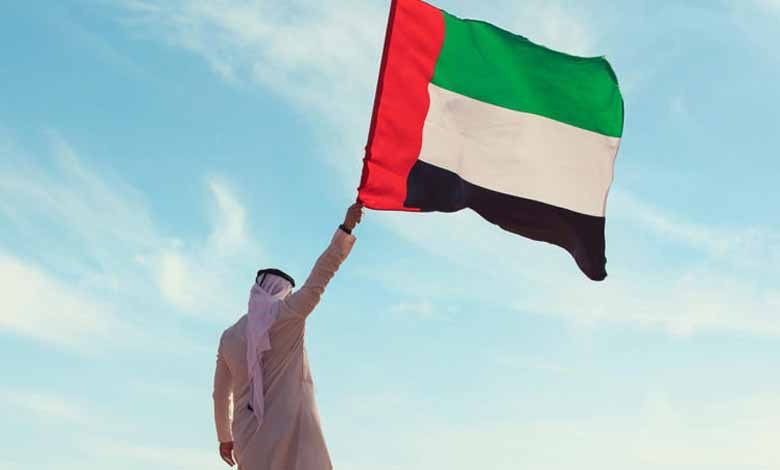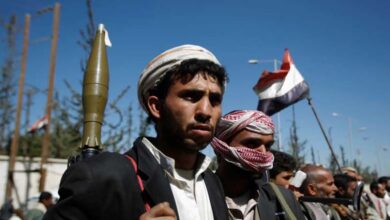UAE reaps benefits from building strategic stock in coronavirus time

The spread of the Coronavirus around the world has created many challenges for different countries, even the greatest ones, most notably the impact of supply chains.
This challenge, which has been caused by the closure of borders and airports in the region and the world, has created a valuable opportunity for the United Arab Emirates to boost their agricultural production and the prosperity of their farms, which have covered an important part of the country’s domestic demand. The UAE’s response has not started with Coronas, in fact, but has been continuing to develop its food security strategy for years.
While companies and businesses around the world are struggling to shut down due to the Coronavirus pandemic, high-tech agricultural projects in the UAE are looking to achieve significant growth as the UAE government is pouring money into the sector, Reuters reported.
For years, the UAE, which relies on imports at a rate of between 80 and 90% to meet its food needs, has spent billions of dollars on agricultural investments outside its borders in the search for food security. However, while the pressure from the virus is increasing on global food supply chains and threatens productive agricultural countries with export restrictions, local producers in the UAE hope to play a bigger role.
Omar Al-Jundi, CEO of Dubai’s performer farmer company, was quoted as saying: Local agricultural products are now in greater demand, while food imports have been adversely affected by the closure of borders and airports, he added: The world as we know it has changed forever. From a macro perspective, governments will resettle some vital sectors; such; Farming to ensure undisturbed supplies.
And it produces nomadic farms, which can grow fruits and vegetables, between 200 and 250 kilograms of paper vegetables every day.
Reuters reports : In the past, expanded programs to increase food production in the region have faced difficulties in adapting to hot climate and lack of water resources. However, the oil wealth puts the Gulf States in a position to take the risk of using new technologies that can enable them to make commercial use of crops; using small amounts of water in harsh environments.
In 2019, Abu Dhabi adopted a series of incentive packages worth one billion dirhams ($272 million) to support agricultural technology projects.
David Rosenberg, CEO and co-founder of AeroFarms, was quoted by Reuters as saying that in some parts of the world, people are saying “prove what you’re saying first and then come here, but the mentality in the UAE is that I’ll do it first and do it better.”
AeroFarms is working to establish an 8,200-square-meter research and development center in Abu Dhabi, the largest indoor vertical farm of its kind, to help bring fresh fruit and vegetables produced on public farms to local markets at reasonable prices. AeroFarms has shown that indoor vertical farms have a 95% reduction in water use for some crops.
Rosenberg said : In the United States, we’ve been able to cut our costs to the point of selling farmers’ prices in fields in the organic category; That’s an increase of about 20%, and that’s a good test, and that’s our goal here (in the UAE), and I think we can achieve it.
Reuters said that in many countries around the world, the Coronavirus’s public isolation decisions have led to a severe shortage of farm labor, which could lead to millions of tons of fruits and vegetables being left without harvest this year.
Abu Dhabi produced 122,550 tons of vegetables during the 2018-2019 season, according to official media.
Abu Dhabi Investment Bureau is ready to bet on new technology; The Coronavirus pandemic has changed the way institutions operate, due to global containment measures, including public isolation, Reuters said, adding that the Abu Dhabi program hopes to create a center for agricultural innovation that attracts similar-minded companies.
Published in March 2020 by King Abdullah’s Center for Oil Studies and Research in Saudi Arabia, in collaboration with the Environment Authority of the Emirate of Abu Dhabi and the Food Control Authority in the emirate, indicated that the use of more restricted water in the agricultural sectors in Abu Dhabi would extend the life of groundwater in Abu Dhabi from 22 years to about 100 years, as well as the rational and sustainable consumption of groundwater in Abu Dhabi would reduce the need for desert water water consumption, which consumes considerable resources, and would lead to shared environmental, economic and social benefits.
In a report published yesterday by the Emirates News Agency, it was noted that the recent steps taken by the Emirates Council for Food Security have contributed to the strengthening of the national stock of food and health supplies. He stressed that the recent passage of the Strategic Stock Law for Food Commodities in the United Arab Emirates is a strategic step to enhance the food security system in the Emirates, which contributes to raising the state’s reserves of major food commodities in various circumstances, including crises, emergency and disasters.
More than ten years ago, the UAE adopted a strategy that calls for the creation of a strategic stock of goods, and for local companies to play a major role in providing these stocks.












